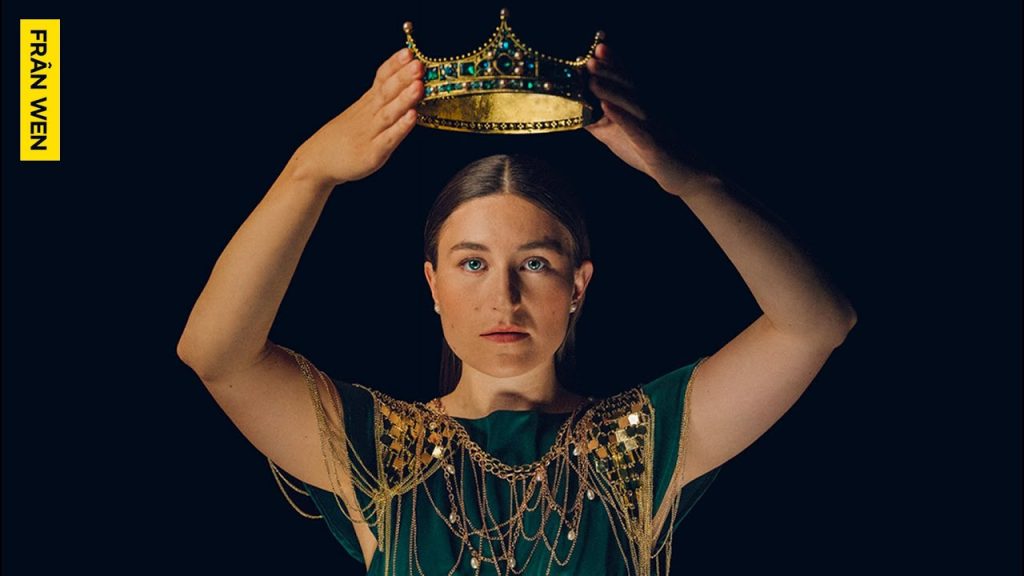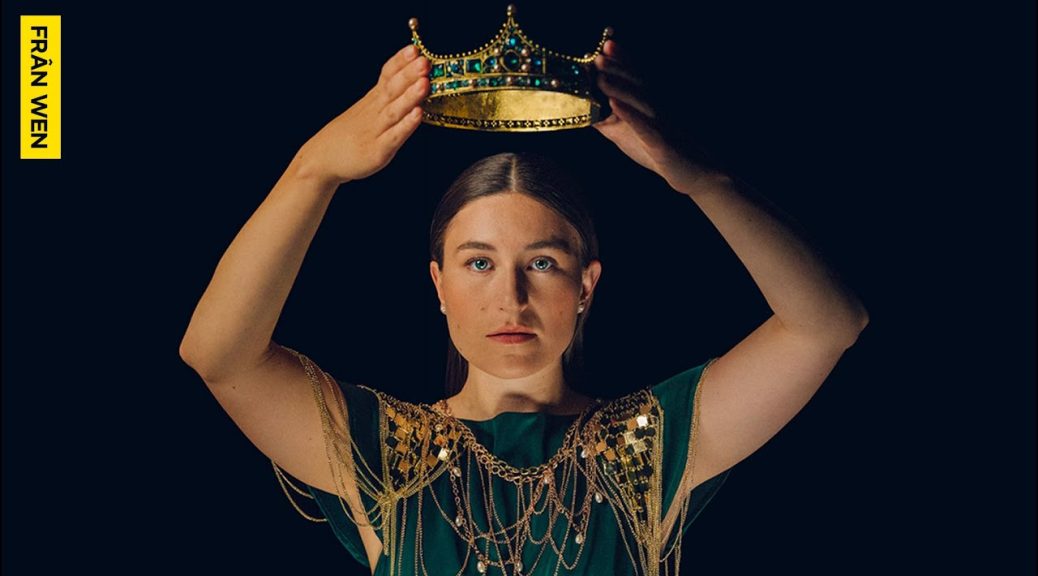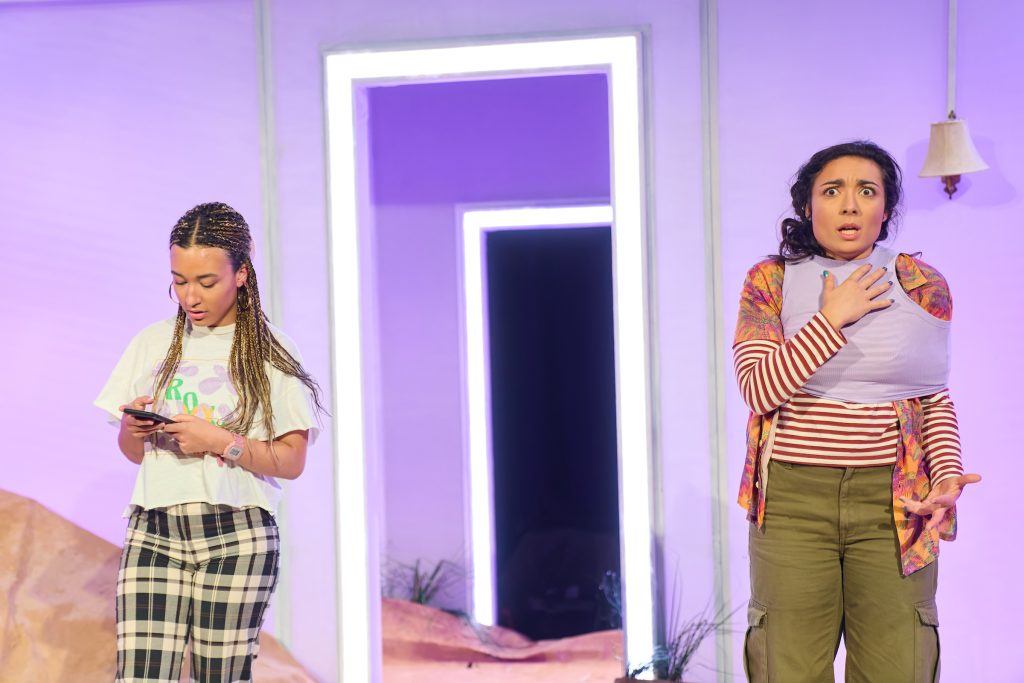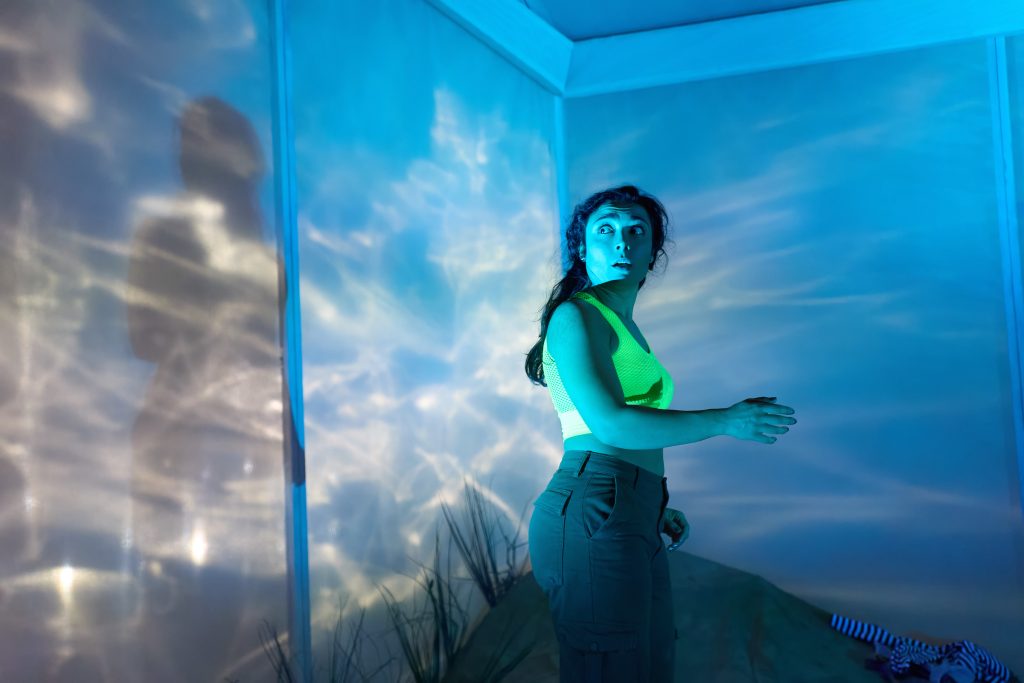
 (4 / 5)
(4 / 5)
A turning point? Branwen: Dadeni certainly feels like it. This “epic new Welsh language musical” heralds a potentially exciting new era for the nation’s theatre. Why? Because it is by far the most ambitious, large-scale theatre production in the Welsh language yet. Testament to what can be achieved when the might of Wales Millennium Centre meets the creative ambition of Frân Wen. It is no understatement in describing the show as worthy of a West End run. The culmination of a long-held confidence by some that our culture is worth investing in.
Adapted from The Mabinogi, this new version exports the mythic weight of the original into a bold and contemporary style. The result is a classic piece of theatre, Shakespearean in size, but with a cutting edge that makes it feel fresh and new. The musical element is a key component to this: a combination of choral tradition, music hall operetta, Sondheim-influenced harmonies and Disney-inspired ballads. Seiriol Davies has not been afraid to draw from the wide pool of musical theatre history and infuse it with Welsh character to create a score brimming with personality. The result is a captivating story. An absorbing commentary on power, family and history that could have been heavy or dictatory but has, instead, been generously and lovingly portrayed.
The costumes fit nicely with each of the characters: from the flowing dresses of the idealist Branwen (Mared Williams) to the army-like uniform of her renegade half-sister Efnisien (Caitlin Drake). So too, the choreography captures beautifully their contrasting personalities: particularly the swish swooning of Matholwch (Rithvik Andugula) in the presence of a buttoned-up Bendigeidfran (Tomos Eames). It is in the songs though that this royal cast of kings, queens and consorts really comes to life. And when one hits the right note, the emotional affect can be overwhelming. Take the tale of the snowfall for instance. The way that Mared gently presses her vocal against the window through which her character witnesses such a scene. So poignant and hopeful, it brings a tear to the eye. Or Gillian Elisa’s vivacious solo, in which her character runs roughshod over the King to proclaim where true power lies. It is delivered with such abundant force as to raise a rapturous applause from the audience.
These are moments which are memorable not just in the context of the show. They make an indelible mark on the mind in the way that some of the best musical theatre productions do. Finding yourself driving home with lyrics still playing out in your head. Fingers tapping the melody on the steering wheel. Feelings still flowing through your body as you go to bed. This is a sure sign that Branwen: Dadeni has in some way been a success. It certainly lays down a marker for future work, which is as challenging as it is inspiring. At a time when investment in the arts is in danger of falling, may Branwen: Dadeni be the start and not the end of something.
Reviewed on the final night at Pontio Arts Centre in Bangor by Gareth Williams






